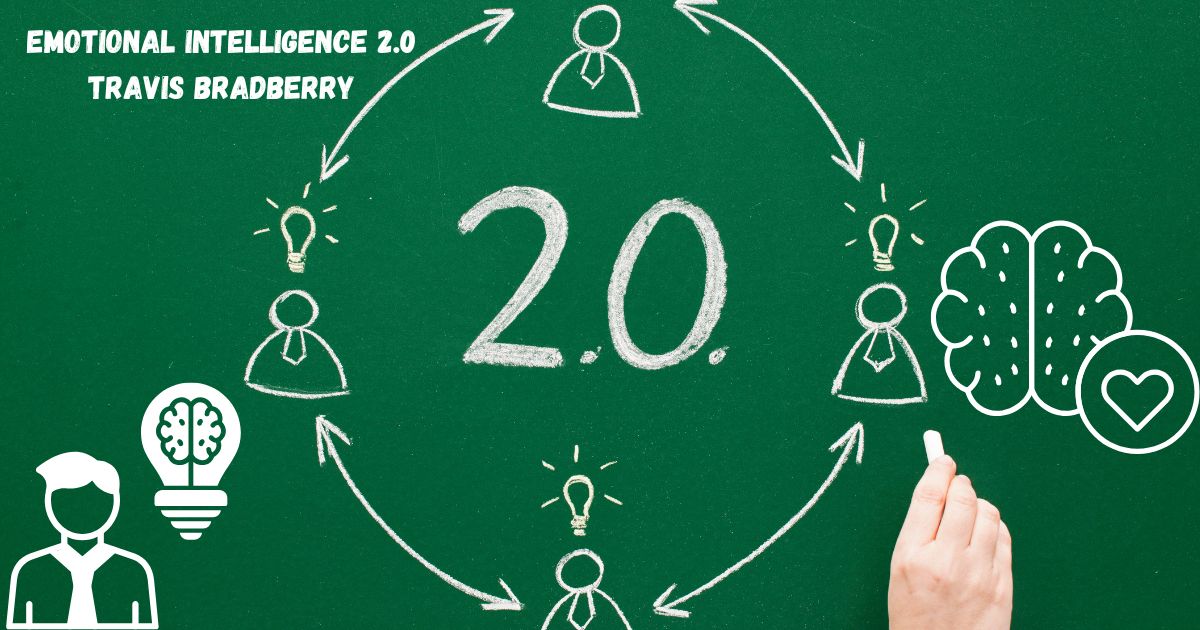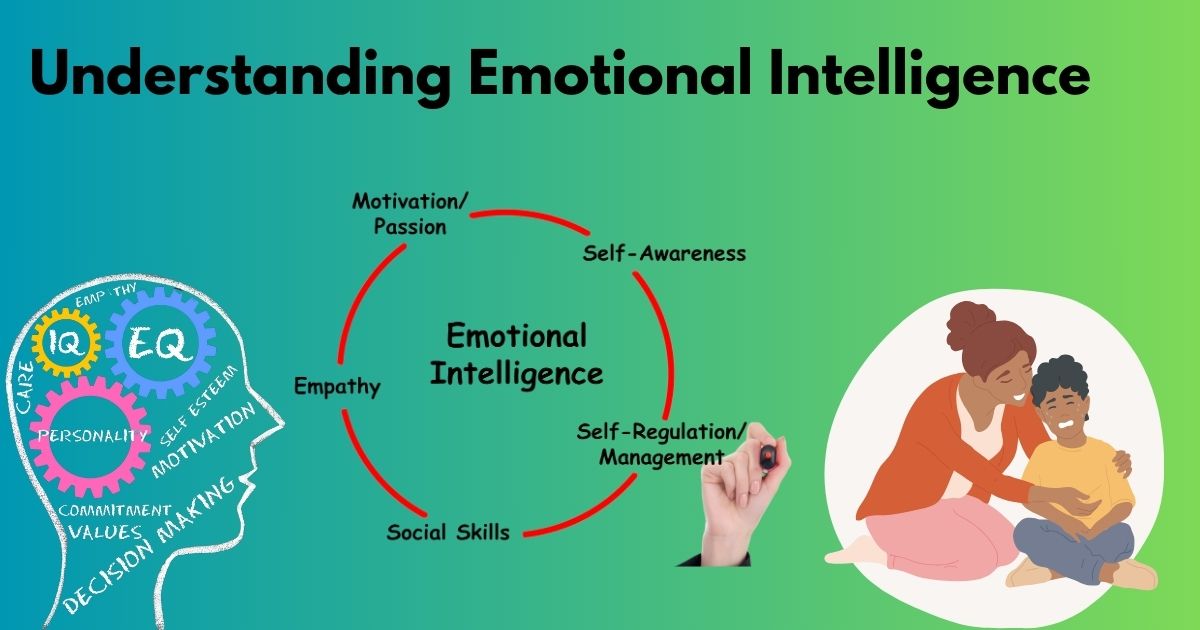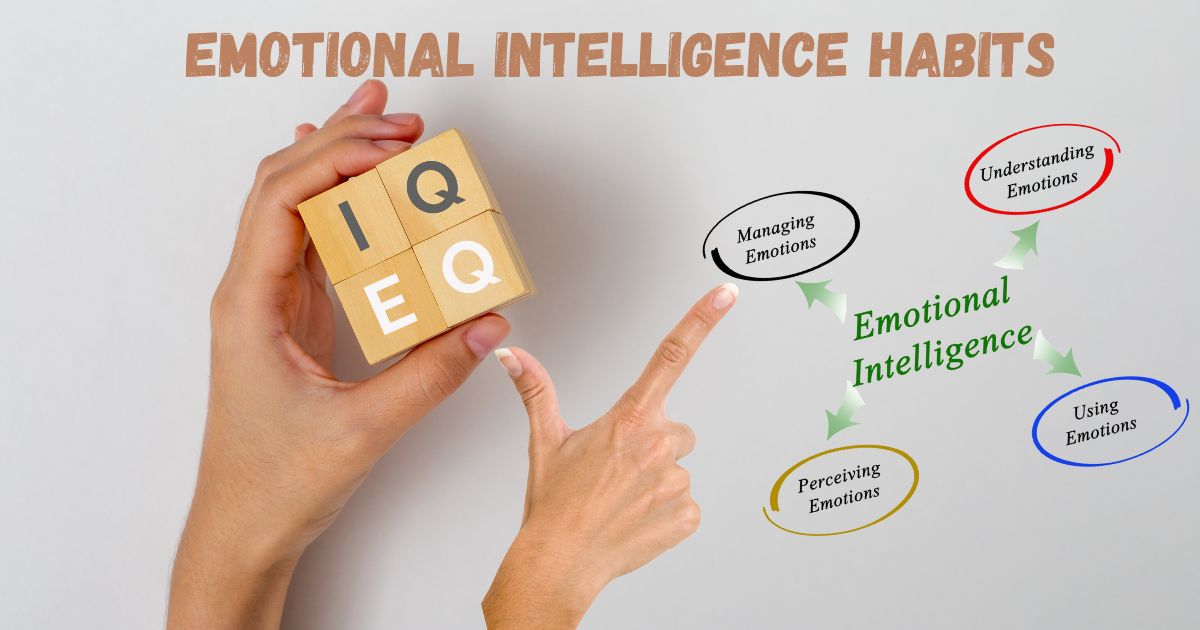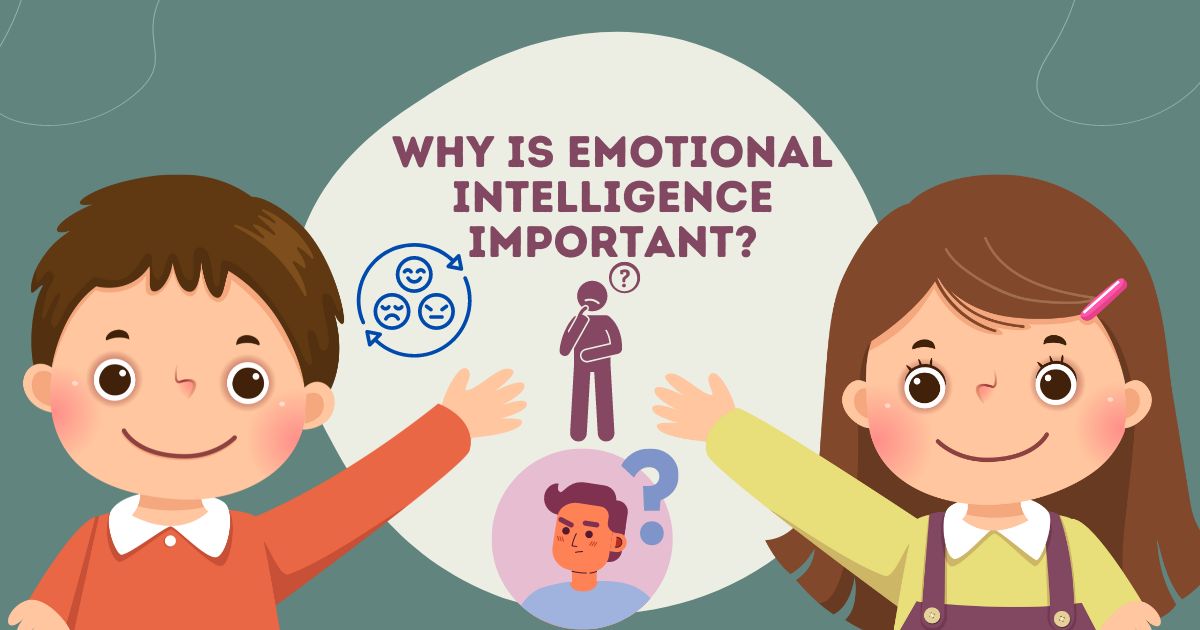Introduction:
Emotional intelligence (EQ) is a term numerous are familiar with, but few grasp its profundity and potential effect. Whereas intelligence quotient (IQ) measures cognitive capacities, emotional intelligence assesses how well people understand and oversee their feelings, as well as how they handle connections with others.
In Emotional Intelligence 2.0 Travis Bradberry gives a comprehensive direction to boosting your emotional intelligence, and advertising techniques that can help in both proficient and personal realms.
The e-book breaks down emotional intelligence into four key components: self-awareness, self-management, social awareness, and relationship administration.
Each of these zones is investigated in profundity, along with viable steps to improve in each. This article will not only explore these components but also offer actionable takeaways and insight into how emotional insights can be connected to improve life outcomes.
Key Takeaways
- Self-consciousness is the inspiration of Emotional Intelligence 2.0 Travis Bradberry. Without information about your feelings, it’s not possible to manage them efficiently.
- Self-control is about control, no longer suppression. Learning to pause and assume significantly earlier than reacting can dramatically improve the way you deal with stress.
- Social focus requires empathy and observation. By paying attention to each verbal and non-verbal cue, you can better understand others and improve your interactions.
- Effective relationship management is important in each private and expert settings. Strong relationships are built on clear communique, mutual respect, and battle decision.
- Emotional Intelligence 2.0 Travis Bradberry may be advanced. While some human beings may also have a natural predisposition to emotional intelligence, absolutely everyone can enhance their EQ through exercise and focus.
Understanding Emotional Intelligence 2.0 Travis Bradberry
| Aspect | Description |
|---|---|
| Personal Competence | Refers to self-awareness and self-control. It’s about understanding and managing your own emotions. |
| Social Competence | Deals with social awareness and relationship management, focusing on how you understand and influence others. |
Emotional intelligence, as portrayed by way of Bradberry and Greaves, is the capability to recognize, recognize, and manage your claim sentiments, in addition to recognizing and impacting the feelings of others.
Unlike IQ, which remains exceptionally strong throughout life, emotional intelligence may be cultivated and stepped forward. This growth is especially critical in current society, in which private and expert success regularly hinges on our capability to navigate feelings successfully.
At its center, emotional intelligence is split into main aspects private competence and social competence. Personal competence refers to self-awareness and self-control, while social competence deals with social consciousness and relationship control.
1. Self-Awareness: The Foundation of Emotional Intelligence
Self-recognition is arguably the maximum crucial issue of emotional intelligence. It refers to your capability to appropriately perceive your very own emotions and live aware of them as they happen. Individuals with sturdy self-attention have clear information on how their emotions affect their thoughts and behavior.
Practical Tips for Enhancing Self-Awareness:
- Practice mindfulness: Regularly checking in along with your feelings can notably boost self-consciousness. By pausing to ask yourself how you sense at one-of-a-kind moments at some point in the day, you could begin to understand patterns in your emotional responses.
- Seek feedback: Often, our blind spots in self-awareness come from not seeing ourselves as others see us. Asking depended-on buddies or colleagues for sincere feedback can provide treasured insights into areas you may forget.
- Keep a journal: Writing down your feelings and mind can help clarify your inner state and deepen the know-how of your emotional triggers.
Through those methods in Emotional Intelligence 2.0 Travis Bradberry, Bradberry, and Greaves argue that you can boost your capability to manage your reactions and improve both your non-public and expert existence.
2. Self-Management: Mastering Your Reactions
Once you end up aware of your emotions, the subsequent step is learning a way to manage them effectively. Emotional Intelligence 2.0 Travis Bradberry.
Self-management refers back to the capacity to use your awareness of your feelings to live flexibly and wonderfully direct your conduct. It’s approximately controlling your emotional responses, particularly in tough situations.
Techniques for Better Self-Management:
- Pause earlier than reacting: In disturbing moments, it is easy to let feelings dictate your actions. By pausing earlier than responding, you give yourself time to suppose severely and act in a manner that aligns with your lengthy-term goals, instead of your immediate feelings.
- Replace poor self-speak: Bradberry and Greaves highlight the significance of changing poor internal speak with more optimistic thoughts. Instead of questioning, “I’m terrible at this,” you may say, “I can improve with practice.” This simple shift can have profound effects on your potential to manipulate strain and stay resilient in the face of demanding situations.
- Visualize success: Visualization is an effective tool that allows you to mentally rehearse how you would love to address a particular state of affairs. By picturing yourself correctly navigating a difficult communication or disturbing event, you could prime yourself for tremendous outcomes.
- Improve your sleep hygiene: Physical and emotional well-being are deeply interconnected. Ensuring you get enough rest can help you better manipulate your feelings. Bradberry and Greaves advocate fending off monitors and caffeine in the night to enhance the high-quality of your sleep.
Self-control is not about suppressing your feelings but as a substitute for channeling them in an efficient route. The greater you practice, the less difficult it becomes to adjust your feelings in actual time.
3. Social Awareness: Tuning Into Others

Social Awareness
Social cognizance involves the ability to apprehend the feelings of others. It’s about empathy, listening, and selecting non-verbal cues that monitor what someone else might be feeling.
Developing social attention allows you to build deeper, more significant relationships, and higher navigate social interactions in each personal and professional settings.
Steps to Boost Social Awareness:
- Greeting humans by using names: According to the authors, one of the simplest ways to enhance your social cognizance is to consider and use human beings’s names in conversations. This basic practice fosters connection and makes others feel visible and valued.
- Pay interest to frame language: Much of the conversation is non-verbal. By honing your potential to read body language—inclusive of gestures, posture, and facial expressions—you could advantage of a deeper know-how of ways others are feeling and modify your approach accordingly.
- Ask open-ended questions: Engaging others in communique with questions that require more than just a “sure” or “no” answer encourages deeper verbal exchange. It also alerts which you are interested by what the opposite character has to mention, furthering the bond among you.
- Listen extra, communicate much less: Active listening is key to social cognizance. By focusing extra on what others are saying and much less on what you need to say subsequently, you could better understand their emotions and respond greater thoughtfully.
Social attention calls for regular interest and practice, but as Bradberry and Greaves factor out, the rewards are well really worth the effort. Emotional Intelligence 2.0 Travis Bradberry
People are attracted to folks who make them sense understood, and improving your empathy may have a profound effect on your relationships.
4. Relationship Management: Navigating Social Complexities
The fourth and very last component of emotional intelligence is courting management, which refers to your ability to use your emotional focus to build and preserve healthful relationships.
This skill is essential for everybody in a management position, but it is similarly important in private relationships.
| Strategy | Description |
|---|---|
| Develop a back-pocket query | Have a go-to question to revive conversations when they stall, reigniting interest and engagement. |
| Practice clear communication | Be clear about your needs and expectations while being mindful of others’ emotions. |
| Resolve conflicts quickly | Address issues as soon as they arise to avoid resentment and breakdowns in communication. |
| Encourage feedback | Promote open communication and feedback to better understand others and improve interactions. |
Effective Strategies for Relationship Management:
Develop a back-pocket query: Bradberry and Greaves advise having a pass-to impeach which could revive a conversation when it begins to stall. A properly-timed, thoughtful question can reignite the hobby and keep the speech flowing.
Practice clean conversation: Effective verbal exchange is fundamental to dealing with relationships. Being clear about your desires and expectancies, even as additionally being thoughtful of the alternative character’s emotions, fosters better connections.
Resolve conflicts speedy: Conflict is inevitable in any dating, but letting issues linger can result in resentment and in addition breakdowns in verbal exchange. Address troubles as soon as they arise, to find an answer in place of placing blame.
Encourage feedback: Much like self-consciousness, relationship control flourishes on open communication and remarks. Encouraging others to percentage their thoughts and feelings permits you to better recognize their wishes and improve your interactions.
Relationships, whether or not non-public or professional, may be complicated. Emotional Intelligence 2.0 Travis Bradberry
But with a stable foundation in emotional intelligence, you may navigate those complexities with greater ease and confidence.
The Importance of Emotional Intelligence in Modern Life

The Importance of Emotional Intelligence in Modern Life




